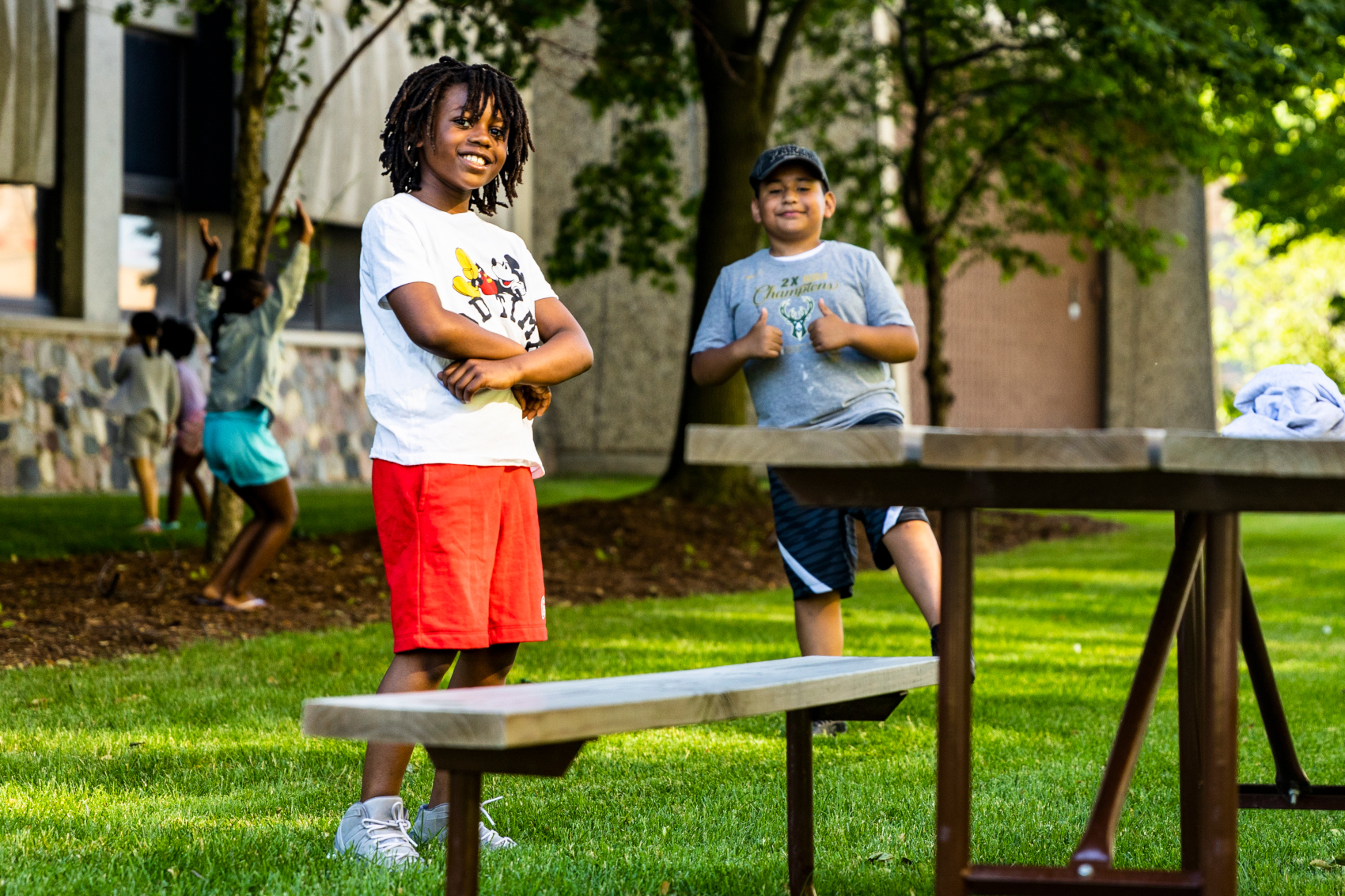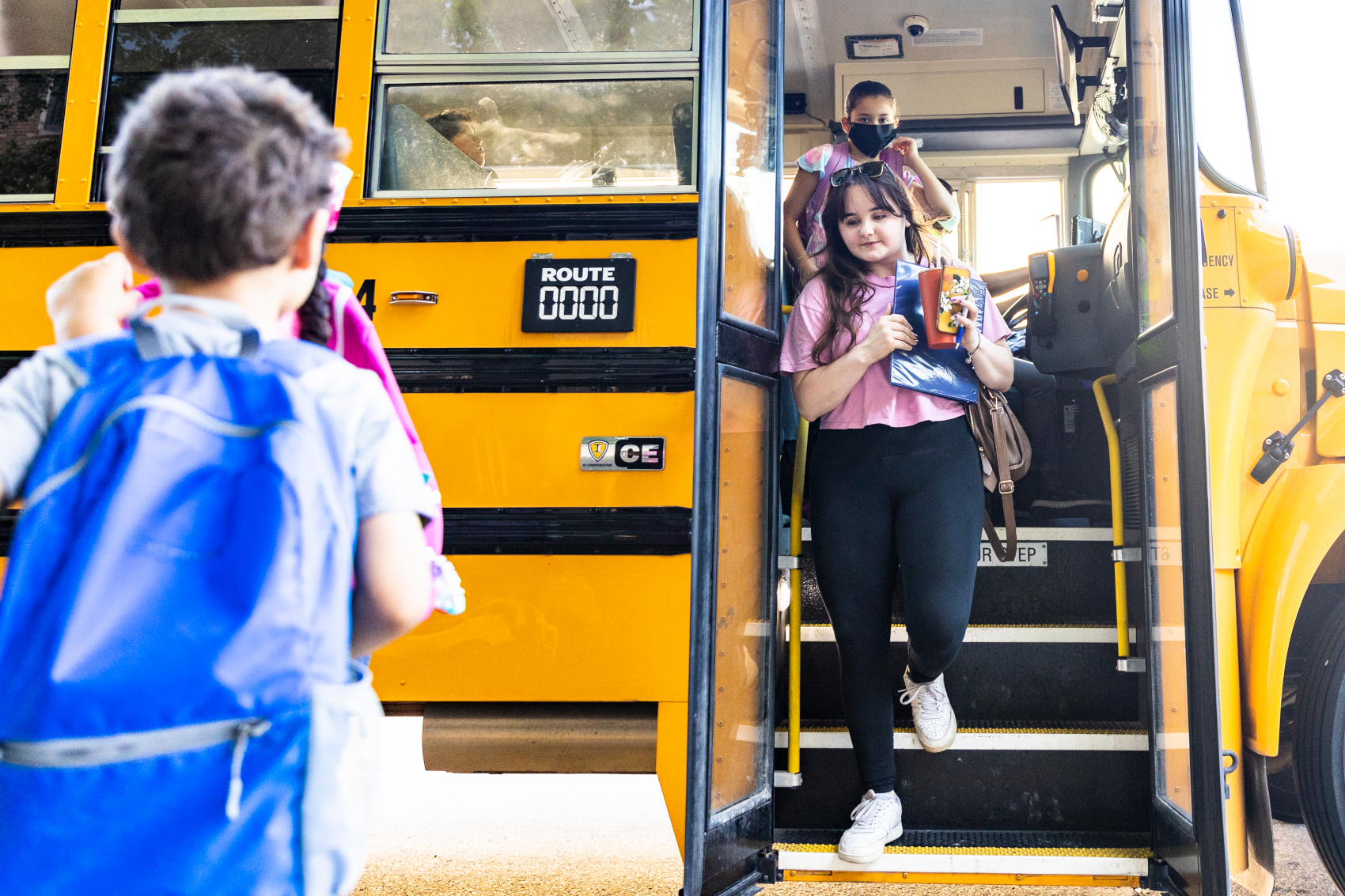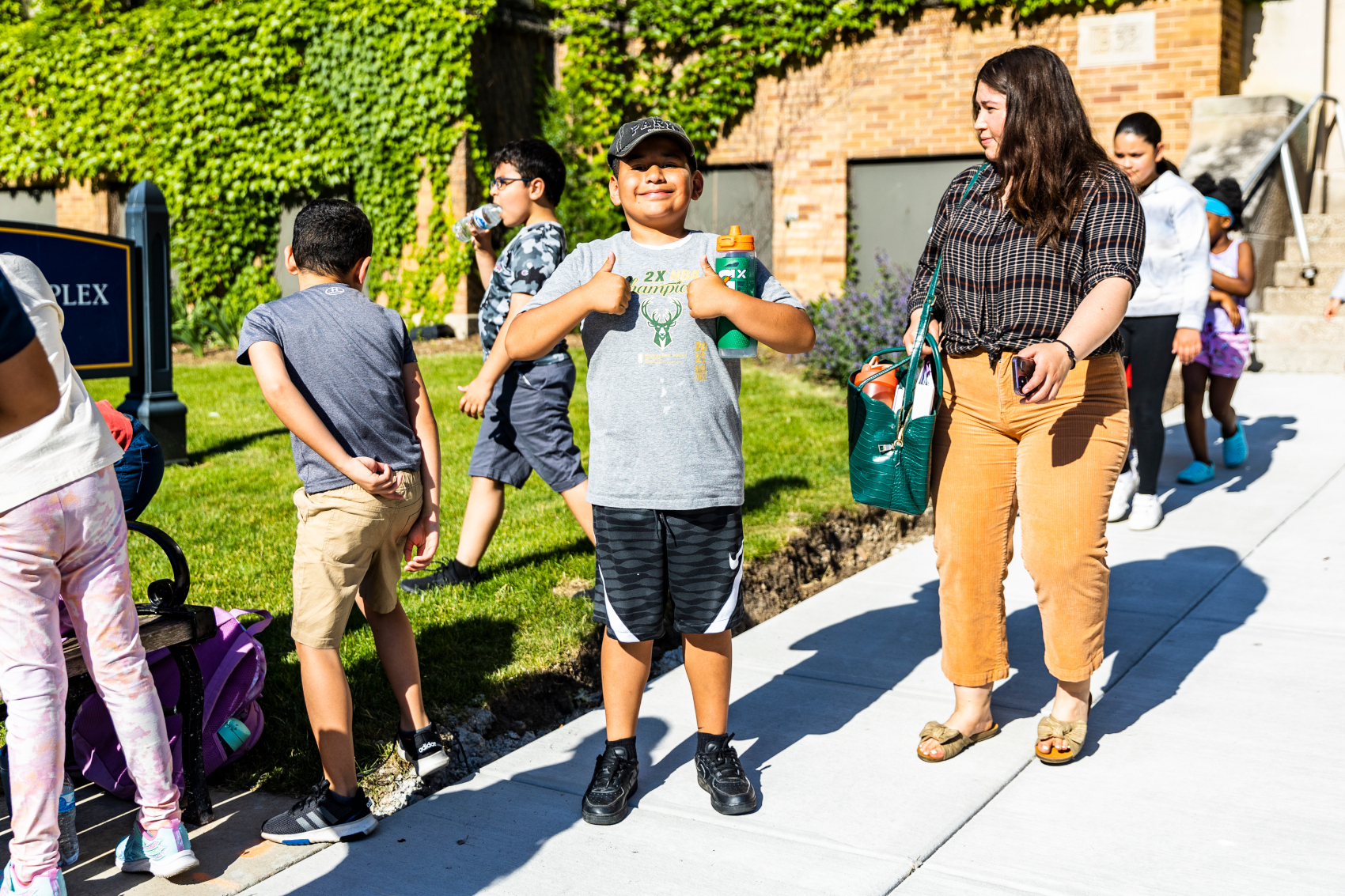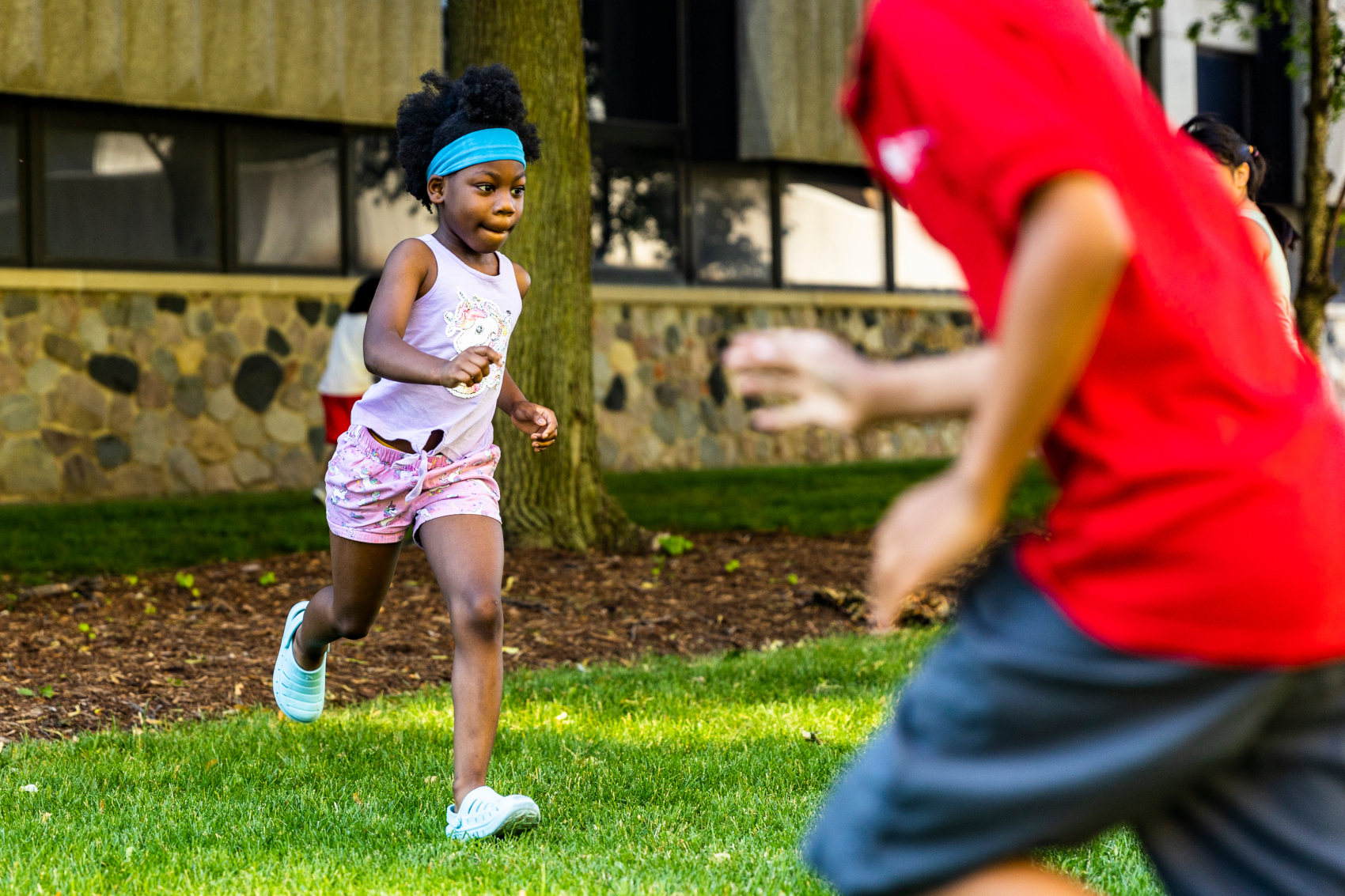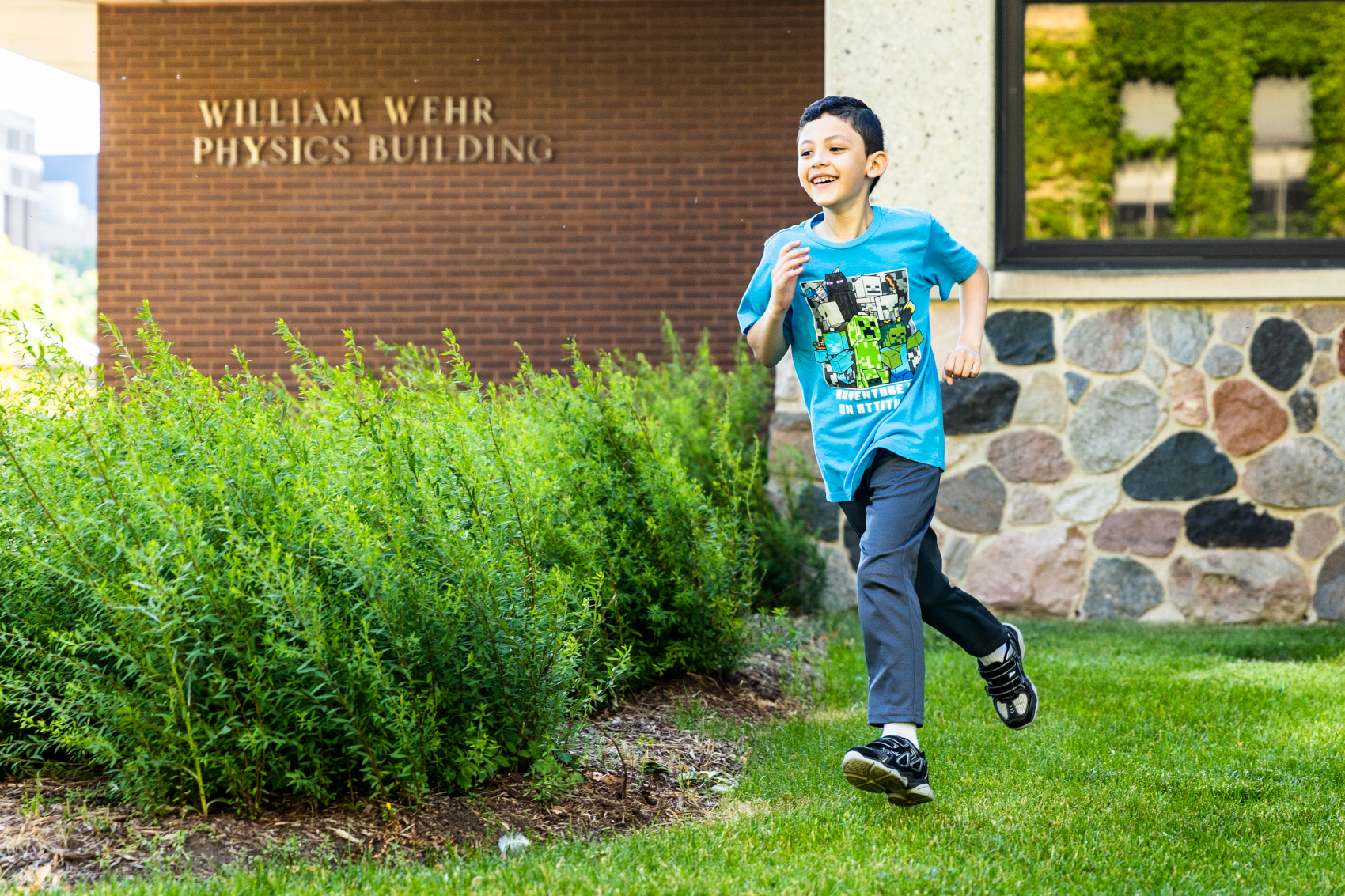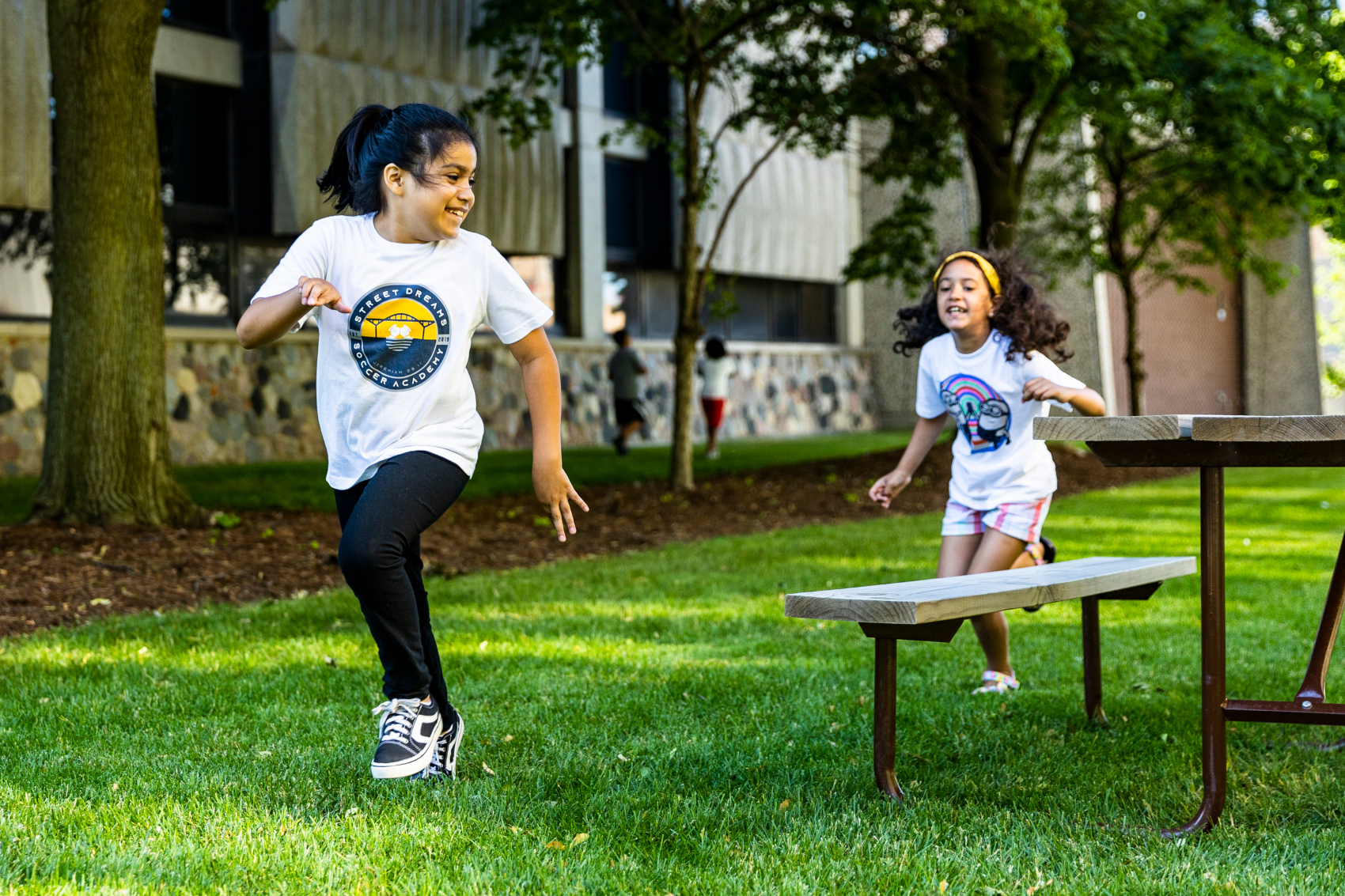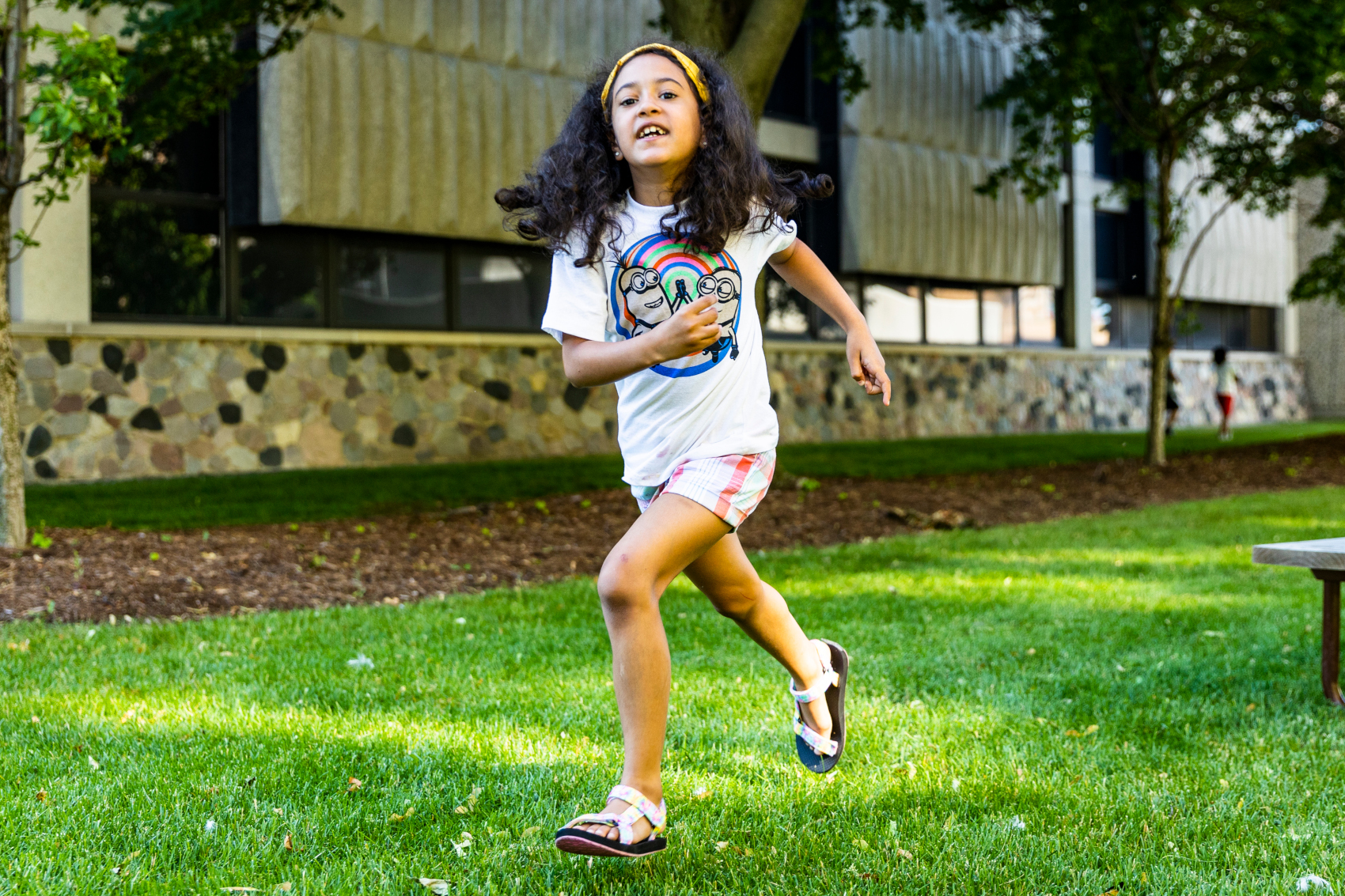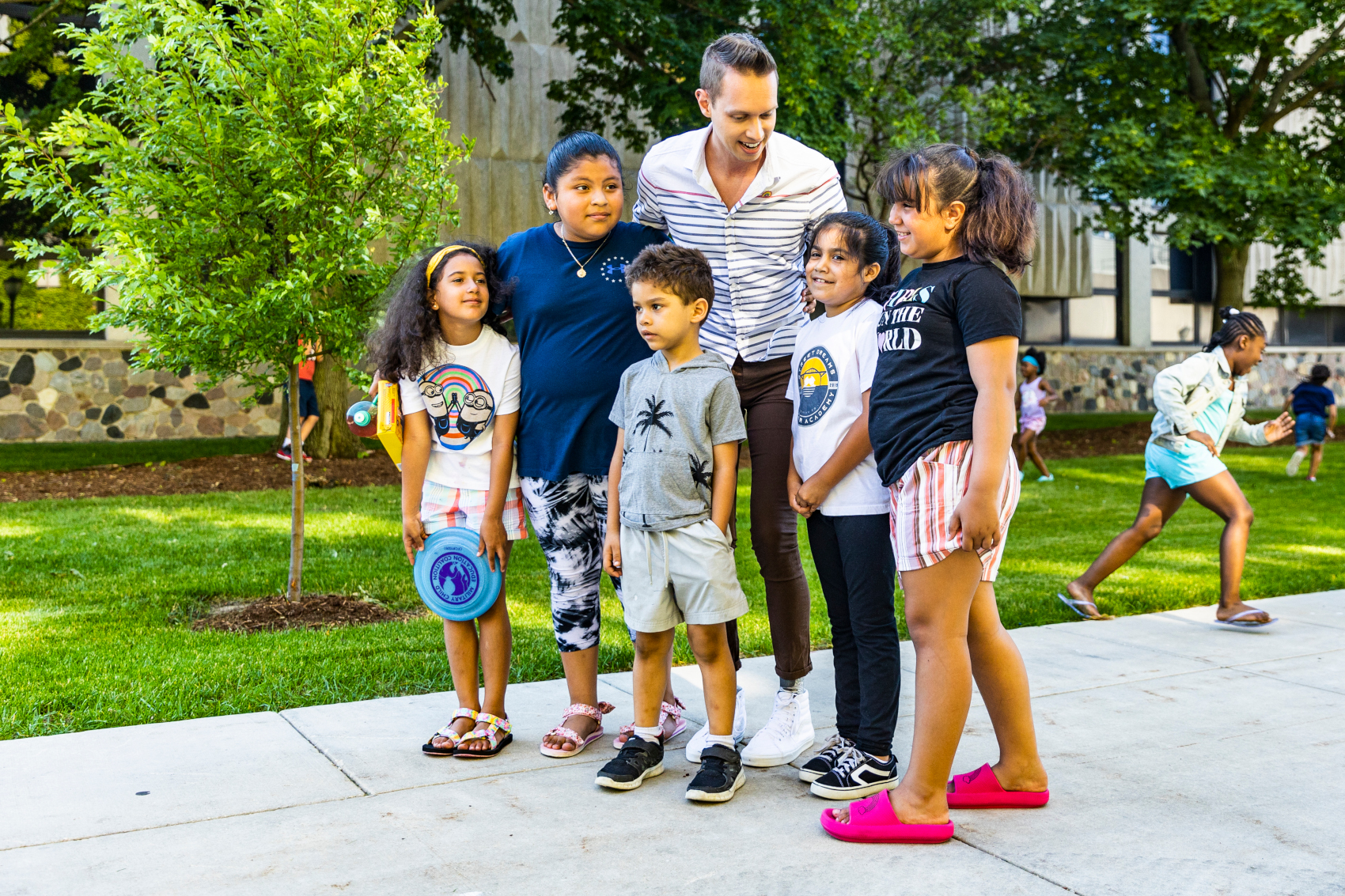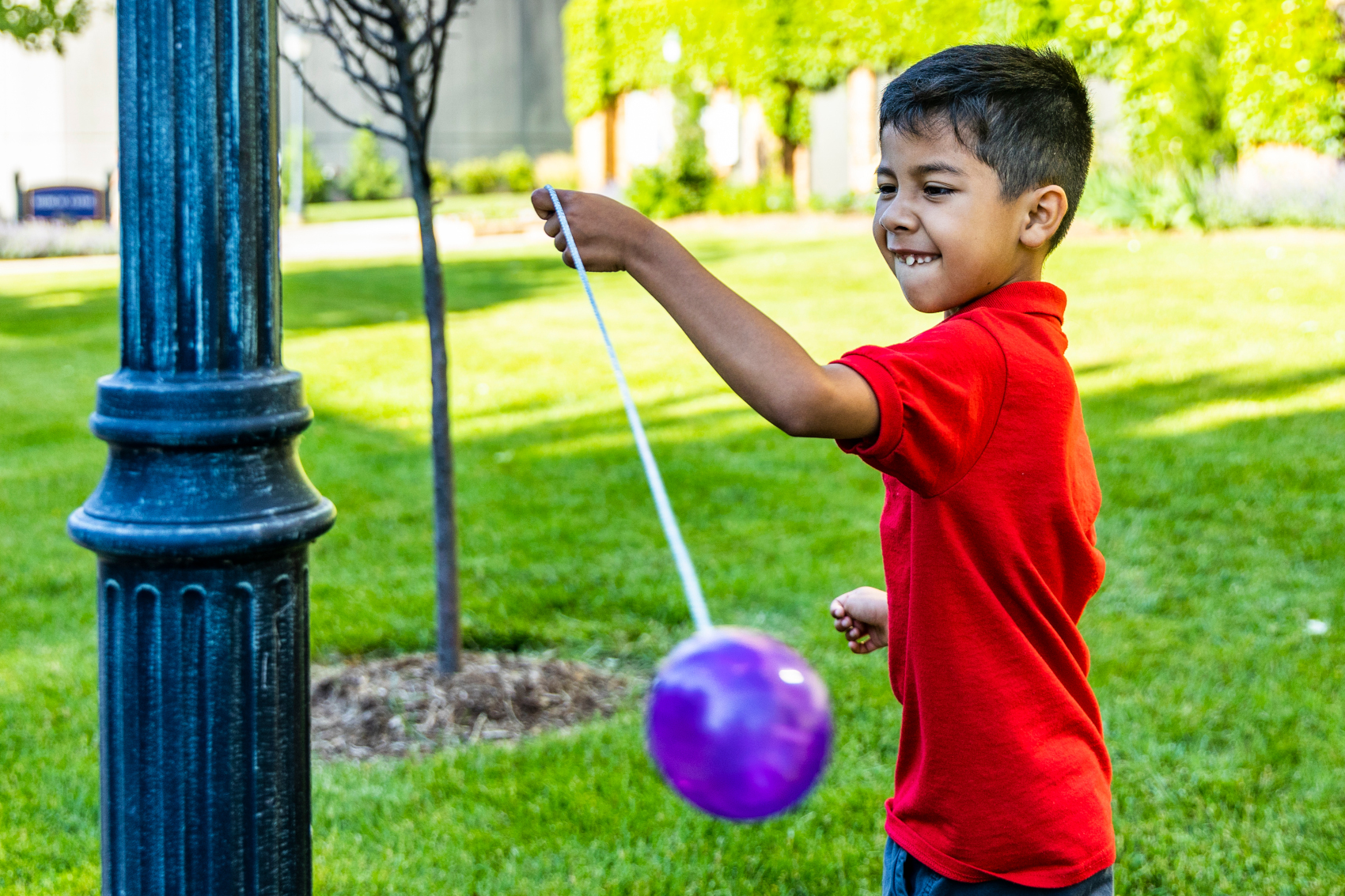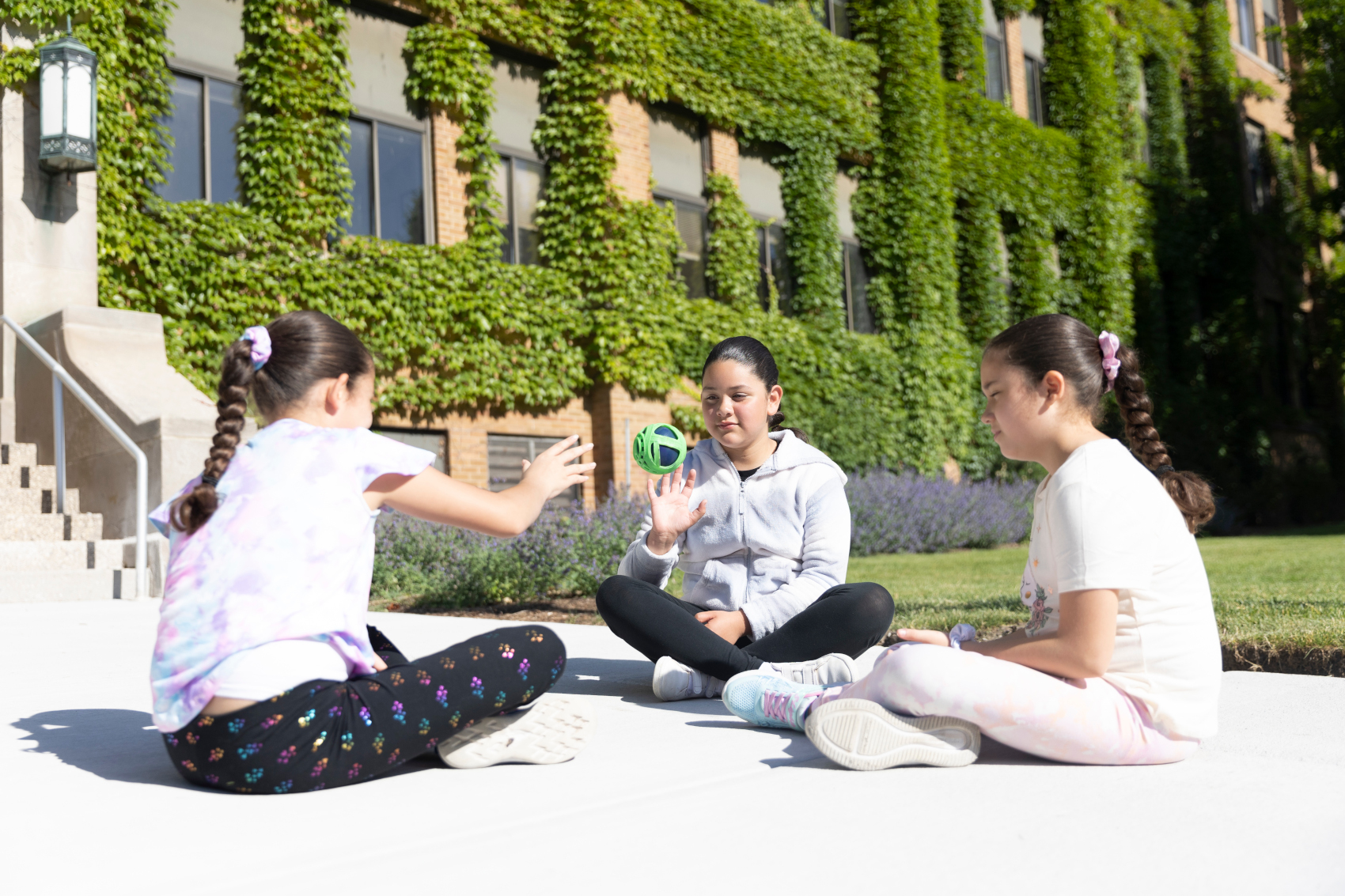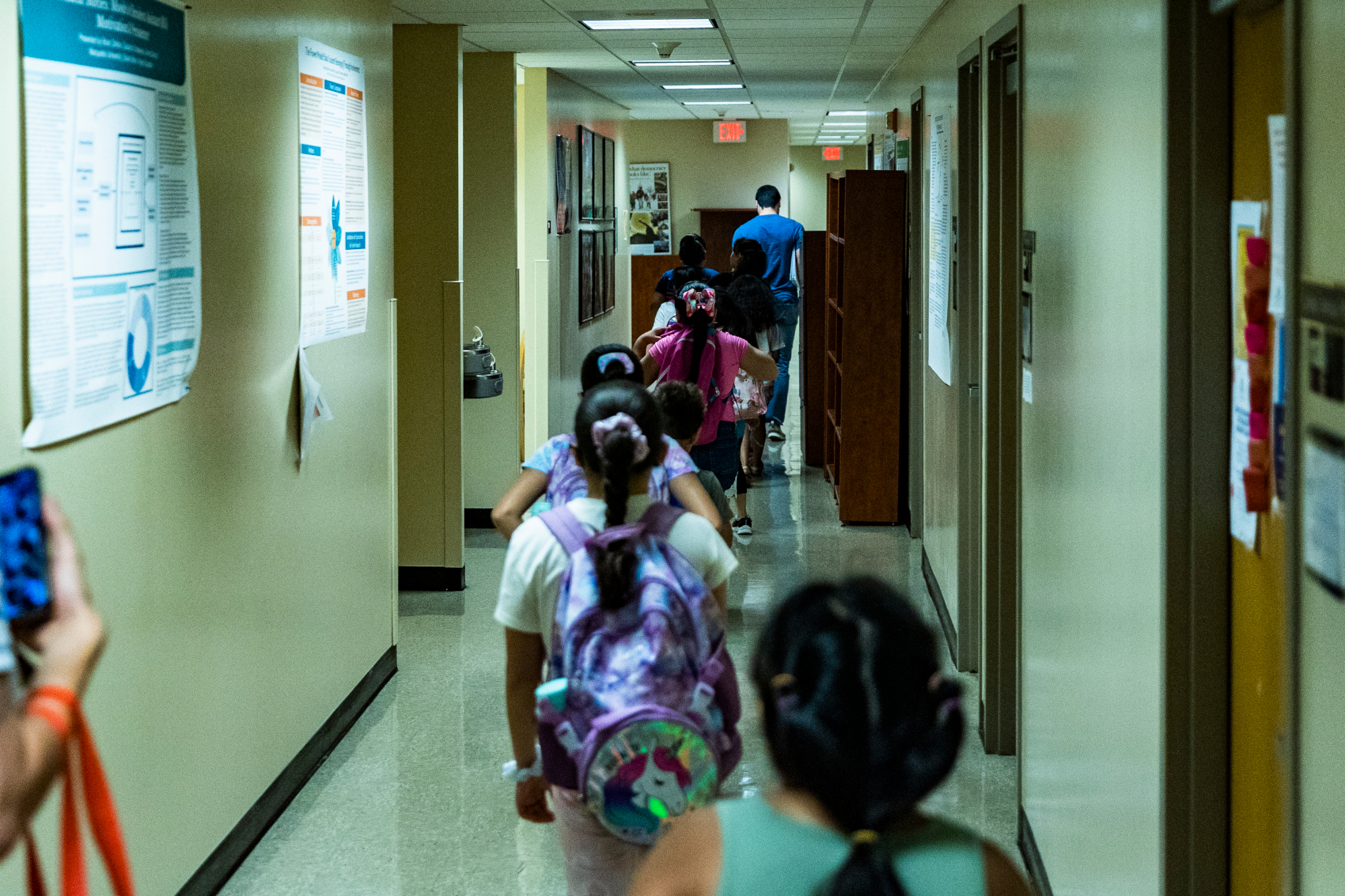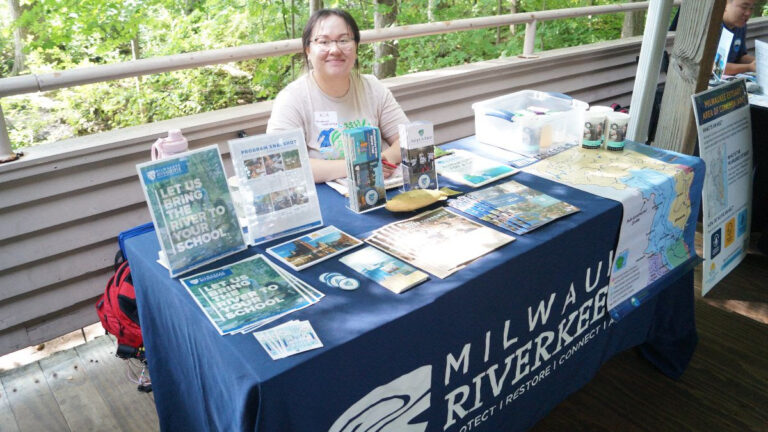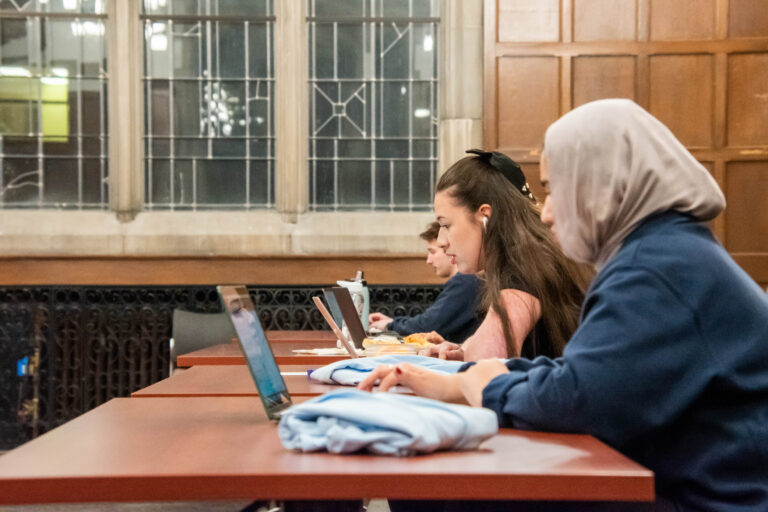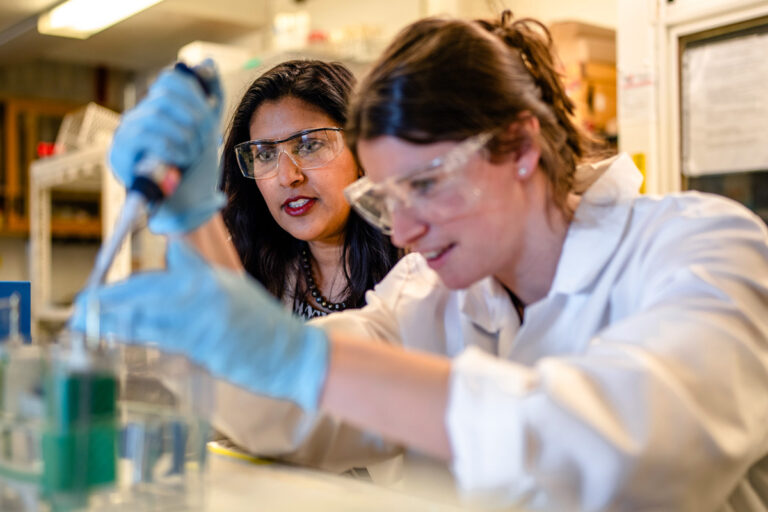It’s a hard truth teachers across the country face annually. When students file into classrooms for the first day of school each fall, many return with achievement levels lower than what they reached at the end of the previous year.
The phenomenon is known as the summer slide, common among students from low-income families. Mary Kate Jezuit, who graduated from Marquette’s College of Education in 2021, has seen it firsthand.
“Oftentimes you’re tested at the beginning and the end of the year,” says Jezuit, a fifth- and sixth-grade teacher at Notre Dame School of Milwaukee. “Those same kids are coming back and there’s a gap, or a fall behind, especially if they’ve been out of the routine of school.”
Dwyane Wade’s program at Marquette is working to curb those setbacks – and now, Jezuit is too. She is one of 10 instructors taking part in the Hartman Center’s Tragil Wade-Johnson Summer Reading Program, which was recently renamed in honor of Wade’s sister following a major gift from the Marquette alumnus and NBA legend.
“The community I come from, a lot of kids don’t have the resources or opportunities,” Wade says. “For us to be able to provide some of those resources is something I thought about when I was a kid, having the ability to change my family’s fortunes. I was able to use basketball as a tool, but not everyone will have that chance. This program not only assists with the fundamentals of reading, but also provides the opportunity to interact with kids from other walks of life, develop communication skills and ultimately be exposed to experiences that they normally wouldn’t have encountered.”
For four weeks, first through fourth graders from Notre Dame, Stellar Elementary, Messmer Saint Rose and the surrounding community will come to campus Monday through Friday to take part in active instruction.
“It’s nice to somewhat still be in that routine and still having those learning opportunities, but also it’s not your traditional school environment,” Jezuit says. “It’s still going to be a fun change of pace for the summer while still getting them to practice their reading skills.”
The program, which launched in 2015 with funding from the Wade’s World Foundation, places students into groups of three to five based on their reading level. It provides a unique opportunity for both students and educators, with both parties benefiting from more targeted small-group literacy intervention and one-on-one attention than is feasible in a typical school setting.
“When we have struggling readers in the regular classroom of like 25 or 30, they are good at hiding,” says Christine Reinders, an adjunct instructor in the College of Education. “They are good at being camouflaged because they don’t feel confident. Here, they’re in that small group and they really don’t have a choice. But what we’re so good at is providing the opportunities to feel successful so they want to participate.”
Students receive 90 minutes of targeted reading instruction each day in addition to writing and integrated science and literacy instruction. Months of preparation go into tailoring the curriculum to the needs of the students. This year, the team worked tirelessly to address the effects of the COVID-19 pandemic on students.
For the families, the program is entirely free.
“One of the things when Dwyane Wade came and talked to us in the first year was about how one his nephews had reading difficulties and with his tremendous resources he was able to get the child the support that he needed,” says Dr. Kathleen Clark, director of the Hartman Center. “Mr. Wade was thinking, ‘But what do people who don’t have my resources do?’ That was really the impetus.”
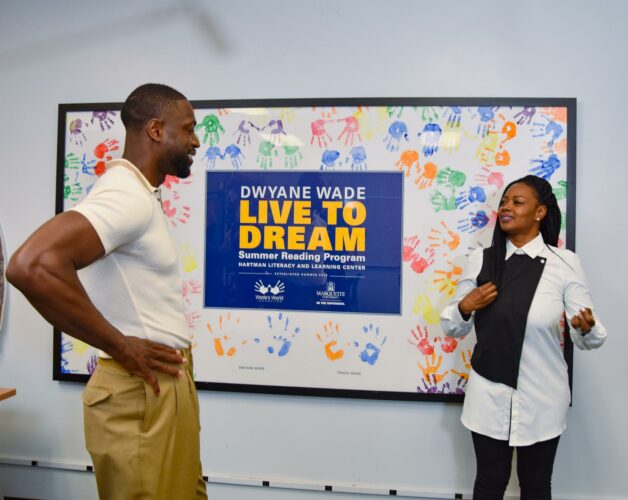
The science component of the program engages students in cycles of doing, talking, reading and writing about science. Children conduct investigations, communicate findings and ideas, read to develop conceptual understanding and write to communicate explanations and results.
That curriculum, which includes a variety of zany experiments like making glue, hair gel and soda, demonstrates how fundamental reading is to the learning experience. If a student hits roadblocks when it comes to reading, it can affect their learning in every other subject.
In the first five years of the program, every participant either maintained or increased their reading level. Wade’s gift to the Hartman Center, announced in June, will help continue that impact through 2025.
“It’s challenging to be a struggling reader in school,” Reinders says. “When they get here, there’s not a lot of confidence underneath them. As we provide them more opportunities to feel success, the smiles come and the laughter comes. It feels great to be a part of that because they come in a little defeated and worried about reading and leave with smiles and feeling happy. That’s probably my favorite part about the summer.”
